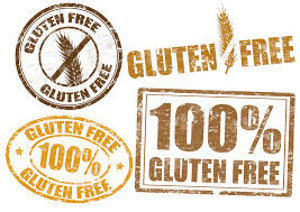22 Jul Gluten Free Or Not?

Now days, being ‘gluten free’ is becoming incredibly common place, but why? And is going gluten free really necessary?
First let’s understand exactly what gluten is, it’s a protein found in wheat and a variety of other grains such as barley, rye, spelt or kamut. The fact that it’s in wheat, and wheat is the most cultivated and used of all grains makes it commonplace in our diet, we eat it in pasta, biscuits, batters, breads and its included in many flavourings.
So is gluten bad for you, here it is important to remember that most Australians can eat gluten containing foods without problem. However, for the 100,000 Australians who have been diagnosed with Celiac Disease gluten is very bad for their health, attacking their intestinal lining, leading to intestinal permeability and leaky gut syndrome. For these people, eating gluten is not an option as it can lead to gastrointestinal symptoms such as diarrhoea, vitamin and mineral deficiencies and a depleted immune system.
A more common condition is ‘gluten intolerance’ where people experience a non-celiac wheat sensitivity. Estimates are that 1 in 15 Australians experience this type of intolerance. This can lead to digestive symptoms, which are improved by excluding gluten from the diet.
The gluten free industry is growing at a rapid rate, currently 1/3 of all consumers are interested in eating gluten free and by 2017 it is estimated that this industry will be worth US$10 billion. The industries rapid growth compared to the numbers of people who actually need to eat gluten free suggest that it is somewhat of a fad as opposed to a medical necessity. This is why food researcher Michael Pollan author of ‘Defense of Food’ and ‘Food Rules’ describes going gluten free as ‘a bit of a social contagion’ while publications such as New Scientist see the driver as strongly psychological as opposed to an actual physical need.
Those who follow the Paleo diet argue that as hunters and gatherers we didn’t traditionally eat grains so they should be avoided, however it should be remembered that we (including our digestive systems) have evolved, and part of this evolution has allowed us to adequately digest grains. Eating wholegrains offer us an excellent source of nutrition.
The concern for those who go gluten free is that they are not eating unprocessed gluten free wholegrains such as rice, quinoa, amaranth and millet, but instead eating the highly processed gluten free packaged goods that contain nasties such as xanthan gum and food additives.
So what to do – 4 easy things:-
If you have digestive symptoms seek advice from a health care professional – it can be for a myriad of reasons and the best thing is a diagnosis and then targeted treatment. Celiac disease can be tested for by a blood test and confirmed on biopsy, whilst your health care professional can pick up intolerances by using specific tests and dietary exclusions.
Limit processed foods and this includes the gluten-free packaged foods in the ‘health section’ in supermarkets. Instead enjoy gluten free grains such as wholegrain rice, quinoa, amaranth and millet.
Go ‘wheat light’ – the average person will consume wheat at every meal time and their snacks too. Clinically, I find that wheat (specifically – not all gluten grains) can aggravate gut symptoms e.g. Irritable Bowel Syndrome. So swopping out wheat for the better tolerated spelt grain is a yummy alternative. There are excellent spelt breads (Tip – try Sonoma Spelt) and I find in most recipes that use wheat flour you can just swop in spelt flour easily.
If you are ok with gluten do try some of the highly nutritious gluten grains such as Rye, Barley and Oats.
Going gluten free? – get some nutritional advice from an expert, plus there are some great associations out there too.
Resources
Coeliac Australia www.coeliac.org.au
Blog – My Petite Kitchen – a wholefood, low gluten blog www.petite-kitchen.com
Book – Food Rules, Michael Pollan – common sense food rules
Sydney Health & Fertility – naturopathic clinic located in Manly www.fertilityhealth.com.au
About the author:
Karen Latter is a Naturopath and Nutritionist practising at Sydney Health & Fertility, Manly – her passion is to empower her patients on the path of wellness. Karen individualises her programmes to your needs recommending dietary and lifestyle advice, herbal medicine and nutritional supplementation. To find out more like: www.facebook.com/KarenLatterNaturopathNutritionistManly


Sorry, the comment form is closed at this time.